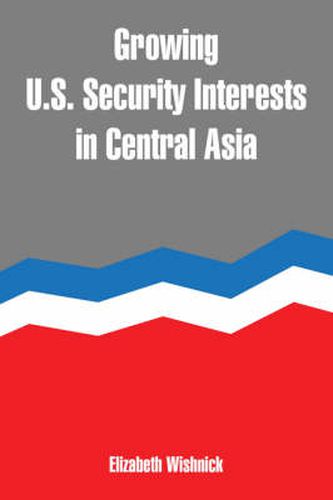Readings Newsletter
Become a Readings Member to make your shopping experience even easier.
Sign in or sign up for free!
You’re not far away from qualifying for FREE standard shipping within Australia
You’ve qualified for FREE standard shipping within Australia
The cart is loading…






This title is printed to order. This book may have been self-published. If so, we cannot guarantee the quality of the content. In the main most books will have gone through the editing process however some may not. We therefore suggest that you be aware of this before ordering this book. If in doubt check either the author or publisher’s details as we are unable to accept any returns unless they are faulty. Please contact us if you have any questions.
Among the many changes brought to American security policy by the attacks of September 11, 2001, is a shift in the strategic geography. Regions and nations that had been at the periphery of concern have taken on new importance because of their relationship to terrorists and the states that sponsor them. Nowhere is this more true than in Central Asia. Until recently, the United States paid very little attention to Central Asia. Now the combination of energy reserves and the region’s location has increased its strategic significance a great deal. In this study, Dr. Elizabeth Wishnick, currently a Fulbright Visiting Scholar at Lingnan University, Hong Kong, assesses U.S. security interests and military activities in Central Asia. She notes that strengthening the Central Asian states against terrorism and assisting their transition to stable and prosperous nations are difficult and fraught with danger. In particular, there is the risk that the U.S. military presence in the region and security assistance to repressive regimes might taint America. If not astutely managed, this strategy could have the opposite of the intended results and generate increased instability, spark anti-Americanism, and antagonize Russia and China. To avoid this, Dr. Wishnick advocates a multilateral strategy that integrates the military, political, and economic elements of national power and prods the Central Asian regimes toward reform. The Strategic Studies Institute is pleased to offer this study to help U.S. defense leaders and strategic planners assess U.S. security interests in Central Asia. Douglas C. Lovelace, Jr. Director, Strategic Studies Institute
$9.00 standard shipping within Australia
FREE standard shipping within Australia for orders over $100.00
Express & International shipping calculated at checkout
This title is printed to order. This book may have been self-published. If so, we cannot guarantee the quality of the content. In the main most books will have gone through the editing process however some may not. We therefore suggest that you be aware of this before ordering this book. If in doubt check either the author or publisher’s details as we are unable to accept any returns unless they are faulty. Please contact us if you have any questions.
Among the many changes brought to American security policy by the attacks of September 11, 2001, is a shift in the strategic geography. Regions and nations that had been at the periphery of concern have taken on new importance because of their relationship to terrorists and the states that sponsor them. Nowhere is this more true than in Central Asia. Until recently, the United States paid very little attention to Central Asia. Now the combination of energy reserves and the region’s location has increased its strategic significance a great deal. In this study, Dr. Elizabeth Wishnick, currently a Fulbright Visiting Scholar at Lingnan University, Hong Kong, assesses U.S. security interests and military activities in Central Asia. She notes that strengthening the Central Asian states against terrorism and assisting their transition to stable and prosperous nations are difficult and fraught with danger. In particular, there is the risk that the U.S. military presence in the region and security assistance to repressive regimes might taint America. If not astutely managed, this strategy could have the opposite of the intended results and generate increased instability, spark anti-Americanism, and antagonize Russia and China. To avoid this, Dr. Wishnick advocates a multilateral strategy that integrates the military, political, and economic elements of national power and prods the Central Asian regimes toward reform. The Strategic Studies Institute is pleased to offer this study to help U.S. defense leaders and strategic planners assess U.S. security interests in Central Asia. Douglas C. Lovelace, Jr. Director, Strategic Studies Institute